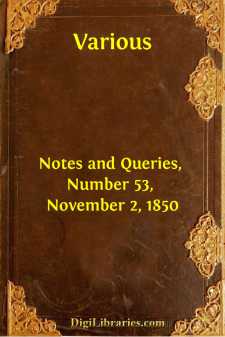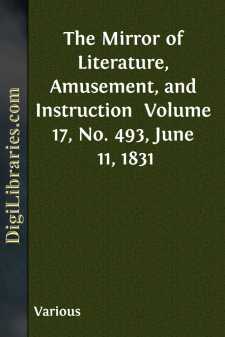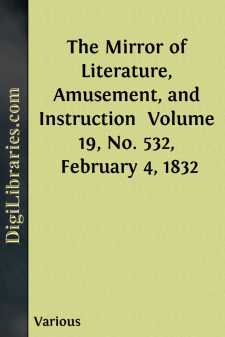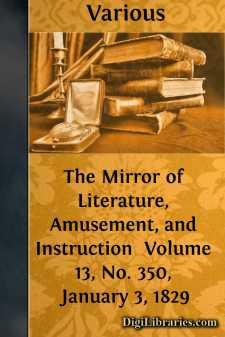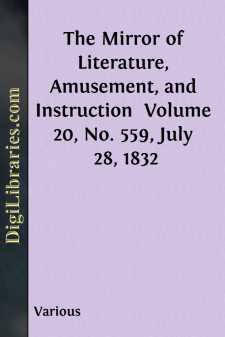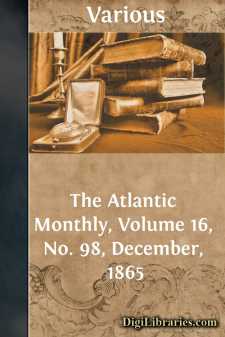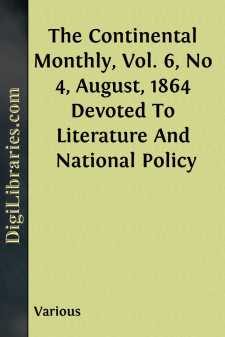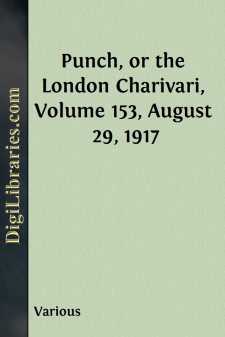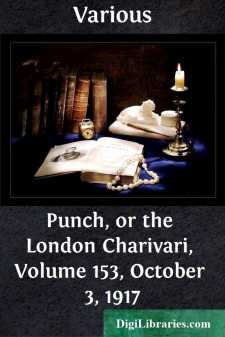Categories
- Antiques & Collectibles 13
- Architecture 36
- Art 48
- Bibles 22
- Biography & Autobiography 813
- Body, Mind & Spirit 142
- Business & Economics 28
- Children's Books 17
- Children's Fiction 14
- Computers 4
- Cooking 94
- Crafts & Hobbies 4
- Drama 346
- Education 46
- Family & Relationships 57
- Fiction 11829
- Games 19
- Gardening 17
- Health & Fitness 34
- History 1377
- House & Home 1
- Humor 147
- Juvenile Fiction 1873
- Juvenile Nonfiction 202
- Language Arts & Disciplines 88
- Law 16
- Literary Collections 686
- Literary Criticism 179
- Mathematics 13
- Medical 41
- Music 40
- Nature 179
- Non-Classifiable 1768
- Performing Arts 7
- Periodicals 1453
- Philosophy 64
- Photography 2
- Poetry 896
- Political Science 203
- Psychology 42
- Reference 154
- Religion 513
- Science 126
- Self-Help 84
- Social Science 81
- Sports & Recreation 34
- Study Aids 3
- Technology & Engineering 59
- Transportation 23
- Travel 463
- True Crime 29
Sort by:
by:
Various
NOTES SHAKSPEARE AND MARLOWE. A special use of, a use, indeed, that gives a special value to your publication, is the communication through its means of facts and conclusions for the information or assistance of editors or intending editors. I do not suppose that any gentleman occupying this position would be guilty of so much disrespect to the many eminent names which have already appeared in your...
more...
by:
Various
BOAT-HOUSE AT VIRGINIA WATER. Lakers and lovers of the picturesque will, doubtless, be flocking to Virginia Water in the coming summer. The rides and walks on its banks are thrown open to the public; but we hope this privilege will not be abused, as of old; for "there was a time when Virginia Water was profaned by the presence of prize-fighters, who were accustomed to train in the secluded alleys...
more...
by:
Various
CAVERN OF ROBERT THE DEVIL. ROBERT THE DEVIL. All the town, and the country too, by paragraph circumstantial, and puff direct, must have learned that every theatre in this Metropolis, and consequently, every stage in the country, is to have its version of the splendid French opera Robert le Diable. Its success in Paris has been what the good folks there call magnifique, and playing the devil has been...
more...
by:
Various
THOMAS HOOD. Thomas Hood was originally intended for business, and entered a mercantile house; but the failure of his health, at fifteen years of age, compelled him to leave it, and go to Scotland, where he remained two years, with much gain to his body and his mind. On his return to London, he applied himself to learn the art of engraving; but his constitution would not allow him to pursue it. Yet...
more...
by:
Various
No description available
by:
Various
OPORTO.OPORTO.Persons who are looking for "news from the seat of war" will probably hail the timely appearance of this Engraving, and regard it as folks sitting at a play do a drop-scene between the acts. The reader knows our pacific politics: we are of the pen, not of the sword; but we cannot be indifferent to a great political result, when Old men, and beldams, in the streets Do prophesy upon...
more...
by:
Various
CHAPTER I "Then I say, once for all, that priest shall never darken my doors again." "Then I say they are my doors, and not yours, and that holy man shall brighten them whenever he will." The gentleman and lady, who faced each other pale and furious, and interchanged this bitter defiance, were man and wife, and had loved each other well. Miss Catharine Peyton was a young lady of ancient...
more...
by:
Various
SOME USES OF A CIVIL WAR. War is a great evil. We may confess that, at the start. The Peace Society has the argument its own way. The bloody field, the mangled dying, hoof-trampled into the reeking sod, the groans, and cries, and curses, the wrath, and hate, and madness, the horror and the hell of a great battle, are things no rhetoric can ever make lovely. The poet may weave his wreath of victory for...
more...
by:
Various
A HEAD CASE. We were discussing that much discussed question, whether it is better to be wounded in the leg or in the arm, when young Spilbury butted in. "I don't know about legs and arms," he said, "but I know there are certain advantages in having your head bound up." Spilbury's own head was bound up, and we all said at once that of course the head was much the worst place...
more...


